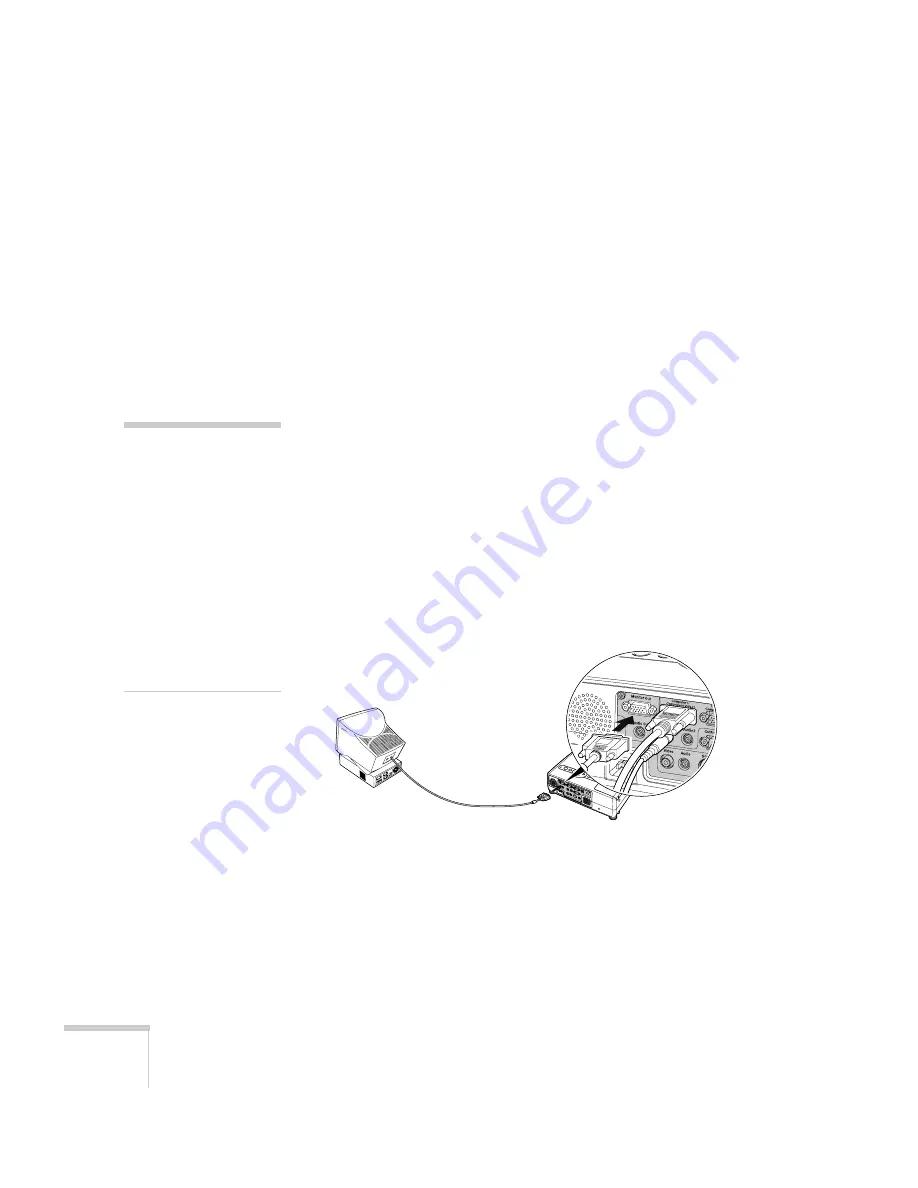
20
Setting Up the Projector
3. Connect the flat end of the cable to any available USB port on
your computer.
4. If necessary, configure your notebook to work with an external
mouse.
If you don’t need to make any other connections, you can plug in
your projector and turn it on. See page 30 for instructions.
Connecting an External Monitor
If you want to see your presentation close-up as well as on the
projection screen, you can connect an external monitor to the
projector. This lets you view images on your computer monitor while
the projector is in standby mode (plugged in but not turned on) and
check your presentation or switch between picture sources even if
you’ve pressed the
A/V Mute
button on the remote control to turn off
projection on the screen.
Simultaneous display is possible only when the computer is connected
to the projector’s
Computer1/Component Video1
port.
Make sure the projector and computer are off. Then connect the
monitor’s cable to the projector’s
Monitor Out
port, as shown:
If you don’t need to make any other connections, you can plug in
your projector and turn it on. See page 30 for instructions.
note
Some LCD monitors may
not be able to display the
image correctly. If you have
trouble displaying the
image, connect a multiscan
monitor. Also, make sure the
computer’s refresh rate is set
to 65 Hz or greater.
You cannot display video
images or configuration and
help menus on an external
monitor.
Summary of Contents for 821p - PowerLite XGA LCD Projector
Page 1: ...Epson PowerLite 821p Multimedia Projector User sGuide ...
Page 106: ...106 Notices ...
Page 112: ...112 Index ...
















































